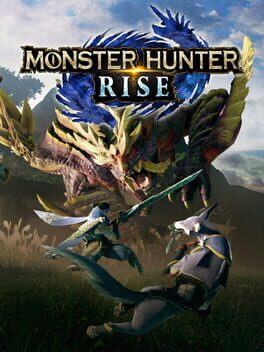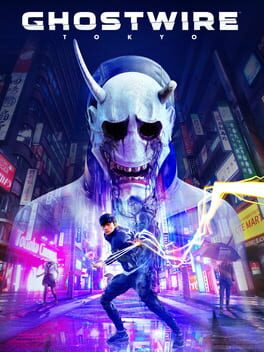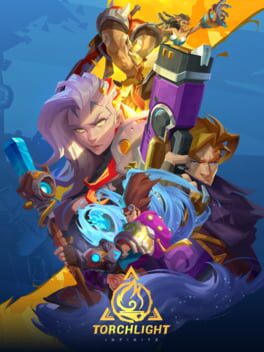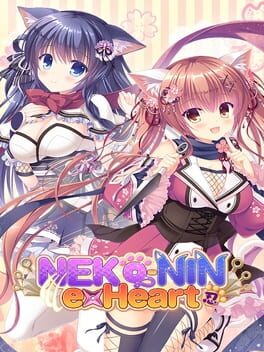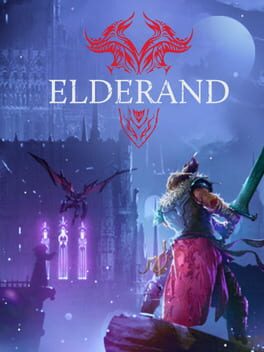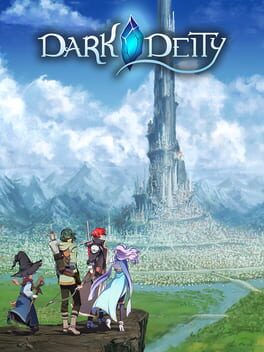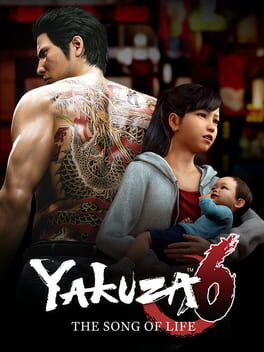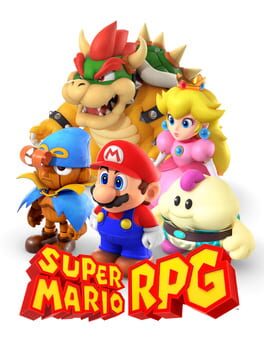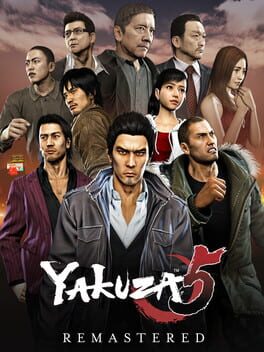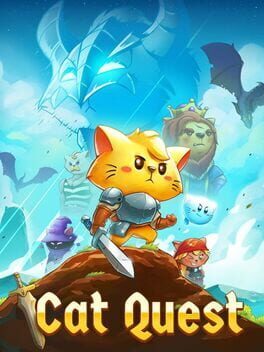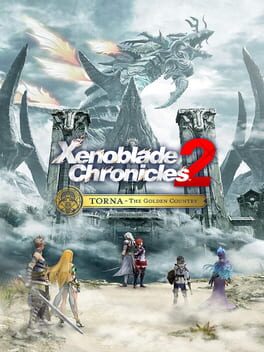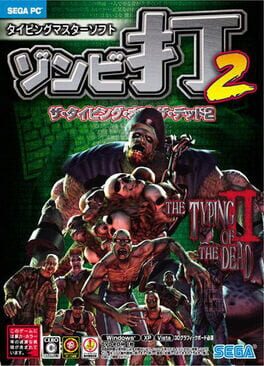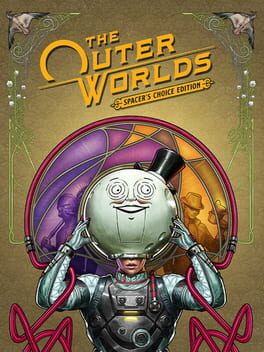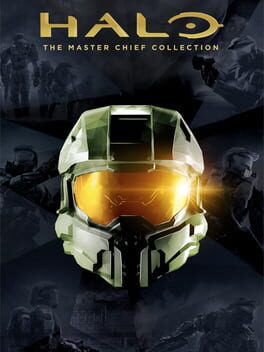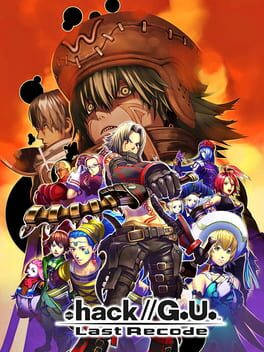ZenCier
2021
Well-executed return to a more arcadey version of the Monster Hunter formula after the hugely successful deviation in World.
+ super satisfying gameplay with refined movement aiblities increasing freedom and general pacing
+ welcoming eastern-themed base town supported by a beautiful vocal soundtrack
+ extensive character customization including two personal support creatures
+ good enemy variety that is introduced gradually
+ strong visual style and solid graphics fidelity considering the release platform
+/- removed tracking mechanic and less world interaction overall
- no particularly interesting map concepts
- wholly forgettable story and characters
+ super satisfying gameplay with refined movement aiblities increasing freedom and general pacing
+ welcoming eastern-themed base town supported by a beautiful vocal soundtrack
+ extensive character customization including two personal support creatures
+ good enemy variety that is introduced gradually
+ strong visual style and solid graphics fidelity considering the release platform
+/- removed tracking mechanic and less world interaction overall
- no particularly interesting map concepts
- wholly forgettable story and characters
2022
A handful of shining moments hidden in a pretty sea of vapid gameplay.
+ culturally focused setting that has its urban open world filled with distinct items and creatures
+ immersive graphics featuring a lot of stunning visual effects particularly during linear sections
+ great soundtrack supporting horror, action, and drama alike
+ enjoyable banter between the two main characters offsetting the lack of NPCs
+ decently written narrative that may not amount to much overall but at the very least has some storytelling ambition
+ exceptional final hour highlighting the game's missed potential
+/- needlessly large map that barely gets explored during the main quest
- a lot of noticeable bugs
- low enemy variety and terrible boss fights
- basic shooting that only becomes adequate with late game abilities
- crazy oversaturation of (admittedly fitting) collectibles made worse by tedious mechanics
+ culturally focused setting that has its urban open world filled with distinct items and creatures
+ immersive graphics featuring a lot of stunning visual effects particularly during linear sections
+ great soundtrack supporting horror, action, and drama alike
+ enjoyable banter between the two main characters offsetting the lack of NPCs
+ decently written narrative that may not amount to much overall but at the very least has some storytelling ambition
+ exceptional final hour highlighting the game's missed potential
+/- needlessly large map that barely gets explored during the main quest
- a lot of noticeable bugs
- low enemy variety and terrible boss fights
- basic shooting that only becomes adequate with late game abilities
- crazy oversaturation of (admittedly fitting) collectibles made worse by tedious mechanics
2022
Disappointing sequel that still makes for an alright online ARPG considering its release on mobile platforms.
+ satisfying moment-to-moment gameplay involving quick-paced movement
+ extensive skill customization that can be reset for free until late game
+ quick and easy inventory management on the fly
+ distinct and high-quality art style featuring beautiful dialogue portraits and quite a few cutscenes
- convoluted ways of character progression (even if a good attempt at explaining is made)
- only 7 pre-made characters with rather unappealing designs
- relatively harmless but still bothersome cash shop following mobile traditions
- uninteresting story that lacks context from the start and is laden with badly written conversations
+ satisfying moment-to-moment gameplay involving quick-paced movement
+ extensive skill customization that can be reset for free until late game
+ quick and easy inventory management on the fly
+ distinct and high-quality art style featuring beautiful dialogue portraits and quite a few cutscenes
- convoluted ways of character progression (even if a good attempt at explaining is made)
- only 7 pre-made characters with rather unappealing designs
- relatively harmless but still bothersome cash shop following mobile traditions
- uninteresting story that lacks context from the start and is laden with badly written conversations
2017
Short kinetic novel that is clearly focused on being an eroge first and foremost.
+ competent if not exceptional voice acting throughout
+ well-drawn art with sufficient variety considering the game's length (2-3 hours)
+ solid default UI encompassing all essential settings
+/- light-hearted and cute story that doesn't pretend to be more than it actually is
- little animation work
- generic and flat characters
+ competent if not exceptional voice acting throughout
+ well-drawn art with sufficient variety considering the game's length (2-3 hours)
+ solid default UI encompassing all essential settings
+/- light-hearted and cute story that doesn't pretend to be more than it actually is
- little animation work
- generic and flat characters
2023
Tremendously derivative but technically well-made metroidvania.
+ decent variety of gloomy yet colorful environments
+ steady stream of skill unlocks and gear upgrades
+ satisfying if basic platforming and action combat
+ appropriate soundtrack
+ good settings menu including full key rebinds
- options for fast travel and stat resets visibly locked until close to the end
- abysmal drop rates of important materials
- straightforward "story" that only includes a few boring cutscenes and doesn't really justify its generic ending
- questionable stat balancing that heavily incentives a strength melee build
+ decent variety of gloomy yet colorful environments
+ steady stream of skill unlocks and gear upgrades
+ satisfying if basic platforming and action combat
+ appropriate soundtrack
+ good settings menu including full key rebinds
- options for fast travel and stat resets visibly locked until close to the end
- abysmal drop rates of important materials
- straightforward "story" that only includes a few boring cutscenes and doesn't really justify its generic ending
- questionable stat balancing that heavily incentives a strength melee build
2021
Fairly serious yet bright TRPG that lacks technical polish but does well in many other areas.
+ intricate class system allowing most units to excel through different combinations
+ solidly written character conversations with looser requirements than similar games
+ diverse and manageably-sized cast that largely stays relevant
+ very clean if somewhat inconsistent pixel art style featuring excellent animations
+ adjustable difficulties even including the option to eliminate chance in stat upgrades
+ enjoyable war story without much nonsense
+ permanent stat debuffs instead of absolute deaths
+ accessible tooltips
+/- conceptually interesting but underdeveloped weapon crafting system
- forgettable soundtrack
- generally poor UI (cumbersome inventory management, unintuitive button mappings, concealed information)
- predictably static enemy AI
- dodge chance as a crucial stat makes a lot of fights either trivial or luck-dependent
- various graphical glitches that actually obstruct gameplay
- needlessly long maps without any opportunities to save
+ intricate class system allowing most units to excel through different combinations
+ solidly written character conversations with looser requirements than similar games
+ diverse and manageably-sized cast that largely stays relevant
+ very clean if somewhat inconsistent pixel art style featuring excellent animations
+ adjustable difficulties even including the option to eliminate chance in stat upgrades
+ enjoyable war story without much nonsense
+ permanent stat debuffs instead of absolute deaths
+ accessible tooltips
+/- conceptually interesting but underdeveloped weapon crafting system
- forgettable soundtrack
- generally poor UI (cumbersome inventory management, unintuitive button mappings, concealed information)
- predictably static enemy AI
- dodge chance as a crucial stat makes a lot of fights either trivial or luck-dependent
- various graphical glitches that actually obstruct gameplay
- needlessly long maps without any opportunities to save
Successful return to a more intimate and condensed narrative that explores its thematic core arguably better than any previous game in the series.
+ amazing character development for the protagonist finally establishing him as one of the greatest anywhere
+ steady stream of awesome cutscenes particularly in the second half
+ thorough look at the meaning of family/bonds from various perspectives
+ impressive showing for the new game engine making everything prettier and less divided
+ most aesthetically interesting setting yet (in the form of a small portside town)
+ at least three remarkable antagonists
+ comparatively well-planned writing with conspiracies that don't require too much suspension of disbelief
+ consistently atmospheric soundtrack delivering both sentimentality and hype
+ very entertaining (if a little out of the way) side quests
- complete absence of some of the most beloved characters
- iffy combat changes that make it look smooth (in part due to funny ragdoll physics) but feel clunky and much less responsive than previous entries
+ amazing character development for the protagonist finally establishing him as one of the greatest anywhere
+ steady stream of awesome cutscenes particularly in the second half
+ thorough look at the meaning of family/bonds from various perspectives
+ impressive showing for the new game engine making everything prettier and less divided
+ most aesthetically interesting setting yet (in the form of a small portside town)
+ at least three remarkable antagonists
+ comparatively well-planned writing with conspiracies that don't require too much suspension of disbelief
+ consistently atmospheric soundtrack delivering both sentimentality and hype
+ very entertaining (if a little out of the way) side quests
- complete absence of some of the most beloved characters
- iffy combat changes that make it look smooth (in part due to funny ragdoll physics) but feel clunky and much less responsive than previous entries
2023
Faithful modernization of a classic JRPG that stands out for being particularly charming and compact.
+ straightforward combat with a unique and fun timing mechanic
+ perfectly suitable presentation for a light-hearted adventure
+ many different mini games to break up the pacing
+ simple but funny story that always moves along quickly
+ relatively good characters with entertaining interactions
+ a lot of secrets to be found everywhere
+ creative enemy designs
- new special abilities negating most of the difficulty
- arbitrary stat increases on level ups implying an optimal path
- some awkward platforming considering the isometric perspective
+ straightforward combat with a unique and fun timing mechanic
+ perfectly suitable presentation for a light-hearted adventure
+ many different mini games to break up the pacing
+ simple but funny story that always moves along quickly
+ relatively good characters with entertaining interactions
+ a lot of secrets to be found everywhere
+ creative enemy designs
- new special abilities negating most of the difficulty
- arbitrary stat increases on level ups implying an optimal path
- some awkward platforming considering the isometric perspective
2019
Hugely ambitious game that builds upon the foundations set by Yakuza 4 to reach some impressive heights in both gameplay and narrative only hampered by massive bloat.
+ five large parts that are distinct enough to prevent exhaustion (different playable characters + locations) and ultimately converge in a rewarding manner
+ brilliant change of pace near the middle with an unprecedented gameplay switch
+ remarkable characterization for the established cast along with several extremely efficient new characters
+ strong story centered around the main theme of dreams
+ huge amount of side content featuring well-crafted, new mini games
+ welcome glow-up in graphics and cinematography
+/- divisive OST with some excellent vocal songs but unfitting background tracks
- disappointing treatment of a fan-favorite character
- relatively underwhelming second part
- slow pacing exacerbated by low movement speed and ubiquitously dragged-on dialogue
+ five large parts that are distinct enough to prevent exhaustion (different playable characters + locations) and ultimately converge in a rewarding manner
+ brilliant change of pace near the middle with an unprecedented gameplay switch
+ remarkable characterization for the established cast along with several extremely efficient new characters
+ strong story centered around the main theme of dreams
+ huge amount of side content featuring well-crafted, new mini games
+ welcome glow-up in graphics and cinematography
+/- divisive OST with some excellent vocal songs but unfitting background tracks
- disappointing treatment of a fan-favorite character
- relatively underwhelming second part
- slow pacing exacerbated by low movement speed and ubiquitously dragged-on dialogue
2017
Cute little action adventure that shows almost everything it has to offer within the first five minutes.
+ charmingly colorful aesthetic without inconsistencies
+ still unrefined but interesting gear system encouraging frequent switches
+/- mindlessly addictive gameplay loop focused on level grinding
+/- endless cat puns
- uninteresting ~5 hour main story
- simplistic action combat with only a handful of enemy types and mechanics
- tediously slow walking speed until close to the end
+ charmingly colorful aesthetic without inconsistencies
+ still unrefined but interesting gear system encouraging frequent switches
+/- mindlessly addictive gameplay loop focused on level grinding
+/- endless cat puns
- uninteresting ~5 hour main story
- simplistic action combat with only a handful of enemy types and mechanics
- tediously slow walking speed until close to the end
Constructive story prequel that could have been a masterpiece with more playtime dedicated to its actual narrative instead of obvious padding.
+ significantly better designed and more mature cast that retroactively enriches some old characters
+ engaging combat with the addition of a brilliant player switch mechanic
+ no more annoying gacha rolls and thus imbalanced skill checks
+ slightly expanded and still amazing soundtrack
+ welcoming eastern-themed city to explore
- relatively few and small areas ruining plot pacing and the sense of adventure
- lack of nuance in antagonists compared to the main game
- removal of specific difficulty options making inflated enemy health bars a real problem
- forced side quests that add up to at least 3-5 hours of uninteresting content (out of ~15 hours total)
+ significantly better designed and more mature cast that retroactively enriches some old characters
+ engaging combat with the addition of a brilliant player switch mechanic
+ no more annoying gacha rolls and thus imbalanced skill checks
+ slightly expanded and still amazing soundtrack
+ welcoming eastern-themed city to explore
- relatively few and small areas ruining plot pacing and the sense of adventure
- lack of nuance in antagonists compared to the main game
- removal of specific difficulty options making inflated enemy health bars a real problem
- forced side quests that add up to at least 3-5 hours of uninteresting content (out of ~15 hours total)
Decently advanced sequel that is playable even for non-Japanese speakers but may not be worth the hassle of getting it to work, regardless.
+ relatively modernized 3D graphics with a less constricted camera
+ more diverse gameplay options
+ a little softer soundtrack
+ improved UX from the beginning
+ English translations for everything past the menus
- poorly integrated save data that is obnoxious to set up (requires too much information) and is quite limited for the story
- worse detection for different keyboard layouts necessitating you to learn the Japanese one
+ relatively modernized 3D graphics with a less constricted camera
+ more diverse gameplay options
+ a little softer soundtrack
+ improved UX from the beginning
+ English translations for everything past the menus
- poorly integrated save data that is obnoxious to set up (requires too much information) and is quite limited for the story
- worse detection for different keyboard layouts necessitating you to learn the Japanese one
Technically well-made and fun role-playing space adventure that quickly loses narrative steam, unfortunately.
+ small but carefully crafted selection of planets with very distinct atmospheres and objectives
+ 2 sizable and (supposedly) great DLC stories included
+ stylized yet crisp visuals with beautiful color usage
+ intricate character customization through stats and skills
+ a couple interesting moral choices to make early on
+ solid core shooting gameplay
+/- consistently humorous dialogue
- insane amount of loot leading to some inventory frustration (which can be mitigated fairly easily, thankfully)
- very short main story with a rushed ending that gives no sense of accomplishment
- neglected companions who barely feel like part of your crew
+ small but carefully crafted selection of planets with very distinct atmospheres and objectives
+ 2 sizable and (supposedly) great DLC stories included
+ stylized yet crisp visuals with beautiful color usage
+ intricate character customization through stats and skills
+ a couple interesting moral choices to make early on
+ solid core shooting gameplay
+/- consistently humorous dialogue
- insane amount of loot leading to some inventory frustration (which can be mitigated fairly easily, thankfully)
- very short main story with a rushed ending that gives no sense of accomplishment
- neglected companions who barely feel like part of your crew
High-value collection that bundles multiple renowned games in a fairly streamlined experience with nice features like unified interfaces or an instant graphics switch for older entries.
I rated each game separately for their campaigns only and looked at them from a mostly modern perspective having never played anything Halo-related before.
Halo: Reach (7 hours, 8/10):
+ unique narrative of a hopeless defense against an alien invasion
+ atmospheric soundtrack that usually wouldn't be associated with a shooter
+ action-packed maps with impressive war backdrops
+ decent variety in mission types
- occasionally unclear objectives
- minimal story with some abrupt scene changes especially at the start
Halo: CE (8 hours, 5/10):
+ fun, straightforward experience overall
+ significantly more refined if less atmospheric visuals than the original version
+ memorable introduction of a simple but frightening enemy faction
- repetitive environments
- badly designed levels in the second half (making you run and avoid random instakill attacks the whole time)
Halo 2 (7 hours, 8/10):
+ high-quality cutscenes for the first time in the series
+ bold perspective change partway through
+ further improved gunplay with added dual-wielding
+ quite a few spectacular set pieces
+ cleanly remastered sound design
- mediocre ending for a standalone game
- too many tedious stationary arenas
Halo 3 (7 hours, 7/10):
+ more interesting enemy, weapon, and vehicle types
+ new ability system for some extra combat depth
+ decent amount of NPC cooperation
+ varied environmental design
- bothersome gameplay interruptions
- noticeably flawed story writing (with corny dialogue)
Halo 3: ODST (4 hours, 5/10):
+ interesting narrative approach with a more grounded perspective and actual squad relationships
+ a few almost tranquil moments supported by beautiful music
+ decent shooting even with the removal of dual-wielding
- obtrusive HUD
- overall unimpressive and often recycled environments
- clichéd writing that seems ambitious but really doesn't achieve much
- bad implementation of a new map system and object finding missions
Halo 4 (5 hours, 7/10):
+ well-integrated cinematics of consistently awesome quality
+ new set of extremely satisfying weapons — at the cost of nerfing old ones
+ good variety of impressive set pieces in the first half
+ more involved story with notable consequences (ignoring some tired tropes)
+ technically much-improved if aesthetically divisive graphics
- uninteresting main antagonist with an anticlimactic final confrontation
- tedious second half spent in sterile corridors
I rated each game separately for their campaigns only and looked at them from a mostly modern perspective having never played anything Halo-related before.
Halo: Reach (7 hours, 8/10):
+ unique narrative of a hopeless defense against an alien invasion
+ atmospheric soundtrack that usually wouldn't be associated with a shooter
+ action-packed maps with impressive war backdrops
+ decent variety in mission types
- occasionally unclear objectives
- minimal story with some abrupt scene changes especially at the start
Halo: CE (8 hours, 5/10):
+ fun, straightforward experience overall
+ significantly more refined if less atmospheric visuals than the original version
+ memorable introduction of a simple but frightening enemy faction
- repetitive environments
- badly designed levels in the second half (making you run and avoid random instakill attacks the whole time)
Halo 2 (7 hours, 8/10):
+ high-quality cutscenes for the first time in the series
+ bold perspective change partway through
+ further improved gunplay with added dual-wielding
+ quite a few spectacular set pieces
+ cleanly remastered sound design
- mediocre ending for a standalone game
- too many tedious stationary arenas
Halo 3 (7 hours, 7/10):
+ more interesting enemy, weapon, and vehicle types
+ new ability system for some extra combat depth
+ decent amount of NPC cooperation
+ varied environmental design
- bothersome gameplay interruptions
- noticeably flawed story writing (with corny dialogue)
Halo 3: ODST (4 hours, 5/10):
+ interesting narrative approach with a more grounded perspective and actual squad relationships
+ a few almost tranquil moments supported by beautiful music
+ decent shooting even with the removal of dual-wielding
- obtrusive HUD
- overall unimpressive and often recycled environments
- clichéd writing that seems ambitious but really doesn't achieve much
- bad implementation of a new map system and object finding missions
Halo 4 (5 hours, 7/10):
+ well-integrated cinematics of consistently awesome quality
+ new set of extremely satisfying weapons — at the cost of nerfing old ones
+ good variety of impressive set pieces in the first half
+ more involved story with notable consequences (ignoring some tired tropes)
+ technically much-improved if aesthetically divisive graphics
- uninteresting main antagonist with an anticlimactic final confrontation
- tedious second half spent in sterile corridors
Unique MMORPG simulation that has a strong immersive core but desperately needed to be condensed into a single focused experience rather than stay as 3 separate, mind-numbingly repetitive games with awkward save transfers.
+ heavenly melancholic soundtrack
+ great main character arc involving serious personality growth
+ insane amount of lore to read about in constantly updating message and news boards
+ some really impressive action cutscenes (for its time)
+/- clear directions for any and all objectives
- relies on having watched the previous anime series for context
- repeatedly copy-pasted "boss fights" that pose no challenge and still show instructions every time
- slow walking speed not helped by the clunky vehicle
- ubiquitous static conversations that can't be sped up
- cryptic story which only gets interesting after dozens of hours
- trivial difficulty until the third volume where lots of grinding is needed
- no NPC interactions outside of the main plot (even party compositions are ignored)
- basic action combat that can't support the large amount of unavoidable fighting and often gets frustrating due to utterly absurd stun locks
- very low number of boring dungeons and quests reused over and over (and over...) again
+ heavenly melancholic soundtrack
+ great main character arc involving serious personality growth
+ insane amount of lore to read about in constantly updating message and news boards
+ some really impressive action cutscenes (for its time)
+/- clear directions for any and all objectives
- relies on having watched the previous anime series for context
- repeatedly copy-pasted "boss fights" that pose no challenge and still show instructions every time
- slow walking speed not helped by the clunky vehicle
- ubiquitous static conversations that can't be sped up
- cryptic story which only gets interesting after dozens of hours
- trivial difficulty until the third volume where lots of grinding is needed
- no NPC interactions outside of the main plot (even party compositions are ignored)
- basic action combat that can't support the large amount of unavoidable fighting and often gets frustrating due to utterly absurd stun locks
- very low number of boring dungeons and quests reused over and over (and over...) again
